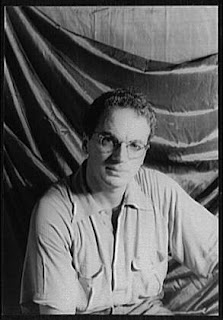I recently watched a pair of dramas new to Blu-ray from Warner Archive where men find themselves in peril and work around the law as they attempt to save themselves.
I was drawn to They Won’t Believe Me (1947) because I liked the cast: Robert Young, Susan Hayward, and Jane Greer. All of them are reliably good and deeply appealing, but none of them got quite the attention they deserved.
This twisty noir is a remarkably good vehicle for the trio. It kept me guessing until the end.
This is a special film in part because it was produced by Joan Harrison, longtime collaborator with Alfred Hitchcock and a rare female in that position, particularly at the time. The restoration includes fifteen minutes that were removed from the theatrical version of the film. From what I understand this footage serves Greer’s character best, making her more sympathetic and fully-realized.
Taylor plays against type as a cad named Larry, a minority partner at a brokerage house, who has married Greta for her money (Rita Johnson) and fallen in love with Janice (Jane Greer) who he meets on the sly on Saturday afternoons. When Greta thwarts his plans to run away with Janice, he falls into another affair with Verna (Susan Hayward) and once again tries to run away with her, but this time the problems he encounters are more complicated than a wife who is unwilling to let go.
Larry is charming and he’s a good talker, so it isn’t surprising that he manages to captivate all these women. He is also skilled at concealing his self-absorption and lack of morals, not only from them, but from himself. The way that fate begins to creep up on him is fascinating, because most films noir are about the mechanics of justice, while here there is an added emotional element. Larry ultimately catches up with himself.
In Each Dawn I Die (1939) James Cagney is a more innocent “man in peril.” This prison drama makes good use of the actor’s ability to be both heroic and a thug.
Here he is determined newspaper reporter Frank Ross, who is framed for a serious crime when he gets on the wrong side of a well-connected man. While locked up, he not only keeps his own moral compass, but tries to help his fellow inmates, who instantly consider him one of their own.
He is especially tight with ‘Hood’ Stacey (George Raft) a career criminal with low expectations of his fellow humans, who is stunned by Frank’s loyalty. They try to help each other out and chaos ensues as a result.
While the prison setting has its share of brutality, the camaraderie between the men is fascinating and a snappy script keeps things popping among them. That underlying feeling of community brings greater tension to a few effectively-staged moments of violence.
Jane Bryan is a standout as Cagney’s girl. She’s sweet, but also tough and clever. George Bancroft is solid, if not terribly expressive as the prison warden. He never comes off as very bright in his films, but here he evokes a decency and sense of fairness that makes him a little more compelling than your typical movie jail official.
It’s one of those crime films that hit all the clichés of thirties hood patter and corrupt officials, but it distinguishes itself because of the way it humanizes its characters.
Special features on the disc include a carryover of the Warner Night at the Movies program from the DVD release. They include a short subjects gallery, cartoons, and a blooper reel. There's also commentary by film historian Haden Guest and a trailer for the film.
Many thanks to Warner Archive for providing copies of the films for review.







